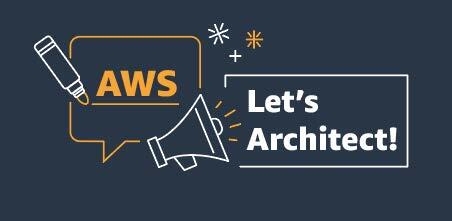AWS Architecture Blog
Category: AWS Lambda
How to track AWS account metadata within your AWS Organizations
United Services Automobile Association (USAA) is a San Antonio-based insurance, financial services, banking, and FinTech company supporting millions of military members and their families. USAA has partnered with Amazon Web Services (AWS) to digitally transform and build multiple USAA solutions that help keep members safe and save members’ money and time. Why build an AWS […]
Implementing the AWS Well-Architected Custom Lens lifecycle in your organization
In this blog post, we present a lifecycle that helps you build, validate, and improve your own AWS Well-Architected Custom Lens, in order to roll it out across your whole organization. The AWS Well-Architected Custom Lens is a new feature of the AWS Well-Architected Tool that lets you bring your own best practices to complement the existing […]
Image background removal using Amazon SageMaker semantic segmentation
Many individuals are creating their own ecommerce and online stores in order to sell their products and services. This simplifies and speeds the process of getting products out to your selected markets. This is a critical key indicator for the success of your business. Artificial Intelligence/Machine Learning (AI/ML) and automation can offer you an improved […]
Serverless architecture for optimizing Amazon Connect call-recording archival costs
In this post, we provide a serverless solution to cost-optimize the storage of contact-center call recordings. The solution automates the scheduling, storage-tiering, and resampling of call-recording files, resulting in immediate cost savings. The solution is an asynchronous architecture built using AWS Step Functions, Amazon Simple Queue Service (Amazon SQS), and AWS Lambda. Amazon Connect provides an […]
Disaster recovery with AWS managed services, Part 2: Multi-Region/backup and restore
In part 1 of this series, we introduced a disaster recovery (DR) concept that uses managed services through a single AWS Region strategy. In part two, we introduce a multi-Region backup and restore approach. With this approach, you can deploy a DR solution in multiple Regions, but it will be associated with longer RPO/RTO. Using a […]
Use direct service integrations to optimize your architecture
When designing an application, you must integrate and combine several AWS services in the most optimized way for an effective and efficient architecture: Optimize for performance by reducing the latency between services Optimize for costs operability and sustainability, by avoiding unnecessary components and reducing workload footprint Optimize for resiliency by removing potential point of failures […]
Throttling a tiered, multi-tenant REST API at scale using API Gateway: Part 2
In Part 1 of this blog series, we demonstrated why tiering and throttling become necessary at scale for multi-tenant REST APIs, and explored tiering strategy and throttling with Amazon API Gateway. In this post, Part 2, we will examine tenant isolation strategies at scale with API Gateway and extend the sample code from Part 1. […]
Throttling a tiered, multi-tenant REST API at scale using API Gateway: Part 1
Many software-as-a-service (SaaS) providers adopt throttling as a common technique to protect a distributed system from spikes of inbound traffic that might compromise reliability, reduce throughput, or increase operational cost. Multi-tenant SaaS systems have an additional concern of fairness; excessive traffic from one tenant needs to be selectively throttled without impacting the experience of other […]
Let’s Architect! Serverless architecture on AWS
Serverless architecture and computing allow you and your teams to focus on delivering business value in place of investing time tweaking the infrastructure characteristics. AWS is not only providing serverless computing as a service, but share that half of our new applications built by Amazon are using AWS Lambda, as noted by Andy Jassy in […]
Let’s Architect! Using open-source technologies on AWS
With open-source technology, authors make software available to the public, who can view, use, or change it and add new features or support new capabilities. Open-source technology promotes collaboration across different teams, organizations, and people because the process often includes different perspectives and ideas, which typically results a stronger solution. It can be difficult to […]








